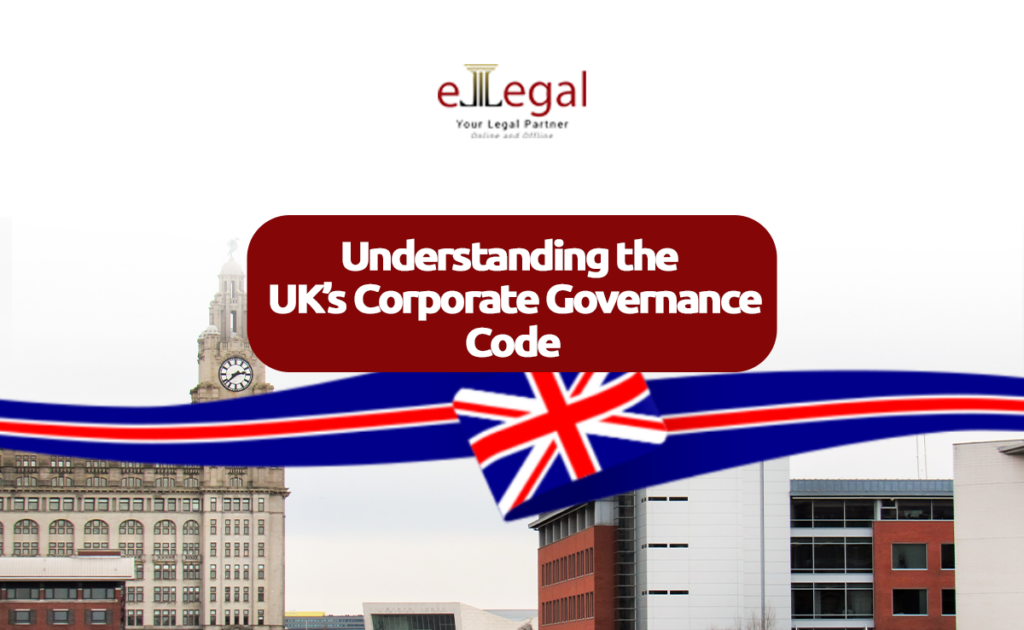The UK’s Corporate Governance Code, commonly called “the Code,” is a cornerstone of corporate governance practices in the United Kingdom. It sets out standards of good practice for companies, aiming to promote transparency, accountability, and long-term success. Understanding this Code is essential for business leaders, investors, and stakeholders, as it shapes corporate behaviour and influences investor confidence and market stability. Let’s delve into the key aspects of the Code, its history, principles, and practical implications.
Brief Overview
Issued by the Financial Reporting Council (FRC), the UK corporate governance code outlines the standards for effective governance practices, helping boards understand their responsibilities. The Code originated from the combined corporate governance code and has adapted over the years to suit the evolving demands of the corporate world. With periodic updates, it aims to ensure that companies on the London Stock Exchange maintain high standards in leadership, effectiveness, accountability, and transparency.
Advantages of the Corporate Governance Code
Builds trust: Following the Code shows stakeholders that the company is committed to transparency and accountability.
Encourages better decision-making: Strong governance structures foster healthier discussions and more thoughtful decisions.
Improves risk management: A solid governance framework helps spot and address potential risks early on.
Supports long-term success: Companies that align with the Code are more likely to achieve lasting success.
The Principles of the UK Corporate Governance Code
Each principle is supported by detailed provisions, offering practical guidance on implementation. Let’s explore these principles in detail:
- Leadership
The board’s role is to provide strategic direction and ensure the company’s long-term success. The Code emphasizes the importance of effective leadership, underpinned by:
- A clear purpose and strategy: Boards should articulate a vision for the company that aligns with its values and stakeholder interests.
- Corporate culture: A healthy corporate culture that fosters ethical behaviour, accountability, and innovation is seen as a cornerstone of good governance.
The chair plays a pivotal role in ensuring the board’s effectiveness, setting the agenda, and facilitating open and constructive discussions.
- Division of Responsibilities
The Code emphasises the importance of clearly dividing responsibilities among the chair, chief executive, and non-executive directors to prevent power concentration. Key points include:
- Independent non-executive directors (NEDs) providing oversight and challenging the executive team.
- The senior independent director (SID) acts as a support for the chair and a contact for stakeholders.
- Boards should maintain a balance of skills, experience, and diversity
- Audit, Risk, and Internal Control
The Code underscores the importance of robust financial reporting, risk management, and internal controls to safeguard shareholders’ interests. Specific provisions include:
- Independent audit committee: The committee oversees financial reporting, internal controls, and the relationship with external auditors.
- Risk management: Companies must establish and maintain a sound system of risk management and internal controls.
- Viability statement: Boards should assess the company’s prospects over at least three years, considering its risk profile and strategy.
- Remuneration
Executive compensation should be closely tied to the long-term achievements of the company and the interests of its shareholders. By ensuring transparency and fairness in how pay structures are established, we can avoid conflicts and foster trust among all stakeholders.
- Composition, Succession, and Evaluation
A well-composed board is essential for effective decision-making. The Code highlights:
- Appointments based on merit: Recruitment should consider diversity, skills, and experience.
- Succession planning: Robust plans should ensure continuity of leadership and align with the company’s long-term strategy.
- Board evaluations: Regular evaluations of the board’s performance help identify areas for improvement.
The ‘Comply or Explain’ Approach
A key characteristic of the UK Corporate Governance Code is its ‘comply or explain’ principle. Rather than enforcing strict regulations, the Code allows companies to depart from its guidelines if they provide a clear and well-reasoned explanation. This flexibility acknowledges that a one-size-fits-all approach may not be suitable for every company, promoting governance practices tailored to each organisation’s specific needs.
For instance, a small-cap company may argue that its size and structure make certain provisions, such as separating the roles of chair and CEO, impractical. However, the company is responsible for justifying its decision and assuring investors that governance standards are still upheld.
Conclusion
The UK’s Corporate Governance Code is essential for promoting transparency, accountability, and long-term success in listed companies. Its principles offer a flexible but strong framework for good governance, encouraging ethical behaviour, stakeholder engagement, and sustainable growth. While there are still challenges to address, the Code’s focus on leadership, accountability, and company culture keeps it at the heart of corporate governance in the UK, and a great example for other countries worldwide. For more information, Contact us.




